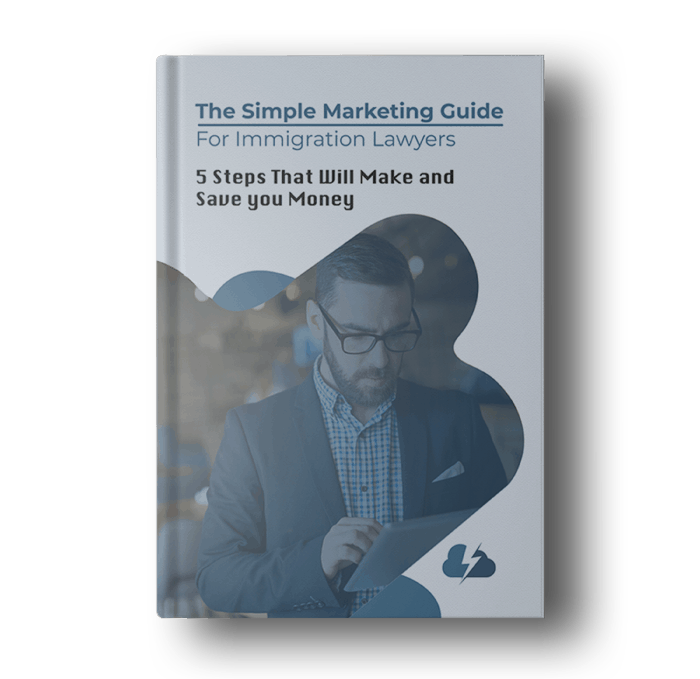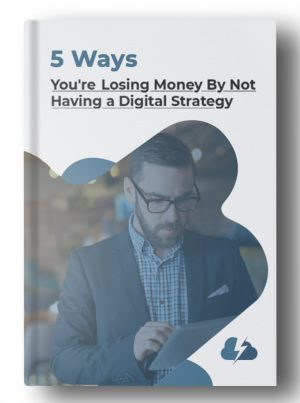Introduction
Off-page SEO for immigration lawyers is what this article will be covering. With the complexities involved in search engine optimization (SEO), it is no surprise that many people are still trying to wrap their heads around it. Though most content marketers usually focus on on-page SEO, the optimization does not stop there. That’s because some of the things that Google pays attention to typically happen away from your site.
Google’s complete algorithm to rank content is still unknown, and the ranking factors and search algorithms are continuously changing. However, the SEO community agrees that the authority, relevance, and trustworthiness off-page SEO affords your site will play a significant role in your page’s ability to rank.
To put it simply, off-page SEO is what tells Google how external sites view your website. If you have many authoritative links pointing to your site’s pages, search engines assume that your site has the type of content that provides value for users.
If you can develop even a basic understanding of off-page SEO, you will be miles ahead of your competition. With that thought in mind, this post aims to guide you through everything you need to know regarding off-page SEO, from what it is to what it involves.
What Is Off-Page SEO for Immigration Lawyers?
Sometimes known as off-site SEO, off-page SEO is a term that refers to all the actions that you do outside your site to raise the rankings of it on search engine results pages (SERP).
It involves improving user and search engine perception of your site’s popularity, authority, trustworthiness, and relevance by getting other reputable online sources to promote or link to your site and effectively vouch for the quality of its content.
While many people often associate off-site SEO with link building, it is more than that. Some of the actions you do that do not result in standard links on other sites are still important for your off-page optimization.
For example, being quoted on other sites or writing a guest post on other blogs, you are still doing off-page site promotion.
Backlinks and Off-Page SEO
Building backlinks is the core of off-page SEO. Backlinks are what search engines use as indications of the linked-to content’s quality. Generally, a site that has plenty of backlinks ranks better than one with fewer backlinks.
The links that will offer you more significant contributions to your optimization efforts are usually those that pass the most equity. Some of the signals that will positively contribute to the amount of equity passed include:
- The freshness of the link
- The popularity of the linking site
- How related the topic of the linking site is to the site being linked to
- How trustworthy the linking site is
- The authority of the linking page and domain
- The anchor text the linking site uses
- How many other links the linking page has.
There are different types of links, which are all differentiated by how you earn them. They include natural links, manually built links, and self-created links.
Natural Links
These are links that are editorially given without you, the page owner, doing anything. For instance, a musical blogger who adds a link to a post that directs people to their preferred music store is considered a natural link.
Manually Built Links
These refer to the links you acquire through your planned link-building activities, such as asking specific influencers to share your content or getting different websites to link to your site.
Self-Created Links
These links are created by practices like adding a backlink to a blog comment signature or an online forum or directory. These, however, is what the SEO industry calls black hat practices and is not recommended. There are certain practices that search engines frown upon, so we advise caution when creating self-created links.
How You Can Get Authoritative, Relevant, and User-Friendly Backlinks
Since natural links from relevant and authoritative websites help search engines trust your site more, backlinks are often viewed as one of the most important off-page SEO factors.
However, you should not only pay attention to the number of links your site gets. The quality of the links also matters.
In the past, if your page generated more links, Google would automatically consider it more valuable and authoritative. Today, however, many questions come up when a search engine sees a link pointing to your page.
Some of these questions include:
- Is the link from an authority site?
- What made the site owner link to your page?
- Is your link fresh, and how new is it?
- How relevant is the content?
That is why, when you are looking to build links to your page or site, always focus on relevant, authoritative, and SEO-friendly links. The following are three of the best ways you can get such links.
Guest Posts
Taking into consideration some of the factors mentioned above, you know which websites are popular, high authority and trustworthy within your industry. These websites most likely are getting a good number of visits each and everyday.
The main reason why a website gets people to visit and come back is because of the content being shared. If you see a valuable article, you are likely to bookmark it, and even share it with your colleagues. This process can happen over and over again making it a great idea to try to publish some of your content on that website to take advantage of all that traffic.
You can create a piece of relevant content and propose giving it to the website owner at no cost in exchange of them publishing it on their site. An added bonus would be to also get a link which points back to your site.
This is where the quality of the websites plays a huge role. It takes time and resources to create content to be able to publish. So I would imagine you wouldn’t want to go to all that trouble and publish it on a site that gets no visitors. You would not see any of the benefits of a good backlink. And if that website doesn’t have a lot of traffic, then it is likely not a high authority website so your site would not get any added points from search engines when they analyze that link.
If you however, publish on a relevant website with high trust and authority, then you are going to be exposed to all of the traffic they have and likely people reading your content can click on your link, or look you up which generates new referral traffic back to your site.
Create and Distribute Compelling Infographics
According to HubSpot, the human brain can process visual information 60,000 times faster than plain text. That means that customers are more likely to respond better to visual content.
Whether you are a B2C or B2B company, visual marketing can be a vital tool to earn editorial links from authoritative sites and drive audience engagement. In fact, many content marketers use infographics to acquire authority links, attract the right audience, and grow their mailing lists.
An infographic can create 37.5% more backlinks than a standard blog post. What’s even better is that you will continue generating organic traffic to your site when people begin sharing your infographics. With sufficient initial promotion, your infographics can even go viral.
All these are just a few of the reasons why creating infographics is one of the best link-building tactics you can try for your off-page optimization.
Broken Link Building
Many of the links you see on authority sites are actually broken. As the hosting expires, a site can be ruined during migration or file transfer. Sometimes, the typing mistakes that happen can also cause links to break.
Broken links lead to 404 error pages that do not appeal to users. When a user clicks on a web page, they expect to see the content they searched for. Imagine the frustrations they experience when they get an error page.
This poor customer experience can drive users away from that site, with some of them vowing never to revisit it, leading to the loss of a lot of business for the site owner.
Capitalize on this advantage by leveraging link-building tactics to generate natural links from authoritative sites.
How Does Building Broken Links Help?
ompared to guest blogging, which is another off-page SEO strategy, broken link building is faster, easier, and can be a significant source for the correct links. Additionally, considering that the internet will always have broken links that need fixing, repairing broken links will never fizzle out or become outdated.
Building broken links boils down to four simple steps:
- Picking a relevant site and conducting a backlink analysis on it
- Finding a broken link
- Contacting the site owner
- Informing them of the dead links on their site
You could offer the owner a replacement link if appropriate. The main idea is, by helping the owner locate the non-functional links their site has, they might return the favor of including a link to your website.
Avoiding Google’s Penalties for Unnatural Links
We cannot talk about off-page SEO without touching on unnatural links and Google penalties. A complete backlink analysis can help you determine the wrong links for your website and how you can stay off the penalty radar.
Some of the best practices that will help you avoid getting penalized include creating content optimized for the users first and diversifying your anchor texts.
Putting your users first involves creating valuable content, integrating data into your posts, and using visuals to convey messages clearer. To diversify your anchor texts, consider using different generic terms, keyword phrases, and brand names so Google does not view the links as manipulative.
Non-Link-Related Off-Page SEO
Though getting links from external sites is the primary strategy in off-page SEO, there are non-link-related off-page SEO strategies that can still help you improve your search ranking.
Some of these strategies include:
- Influencer marketing
- Unlinked and linked brand mentions
- Social media marketing
- Guest blogging
Despite the different strategies, all these activities aim to create a reference to your site from somewhere else. That reference could range from a mention of your website to an actual reference link.
Conclusion
Off-page SEO is all about networking with other site owners and industry bloggers to boost your site’s search engine ranking. Keep in mind that off-page optimization is not a one-off marketing strategy. Be patient and consistent, and remember that the efforts you dedicate to it today will pay off in the future and lead you to the success you desire.
However, it would help if you still dedicated some of your effort to ensuring that your site is ready to receive the authority links you are searching for.
That means making your site navigable and creating better content experiences. Identify the questions your ideal customers ask, then create high-quality content that provides them with the answers they need.
I know we shared a lot of information and if you have any questions, feel free to book a call with us so we can review your situation, answer any questions and provide you with a plan and roadmap to get your website ranking on Google.







